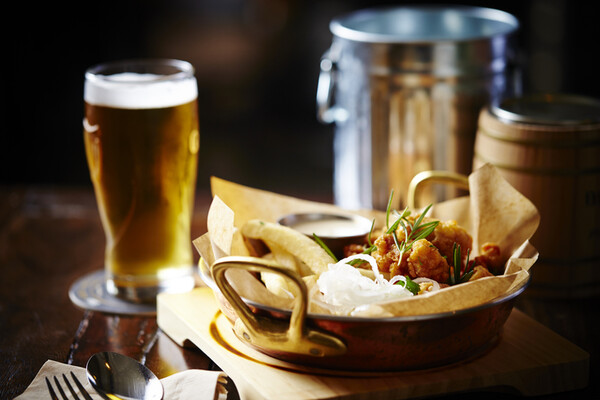[Jeong Jae-hoon’s Column on Food & Drug]
During the hot summer months, staying hydrated is essential for good health. But can coffee, soda, or milk serve as effective alternatives to water? Contrary to the common belief that only water truly hydrates, scientific research offers some surprising insights.
In 2016, a joint study by three British universities compared the hydration effects of 13 different beverages. The study involved 72 adult men in their mid-20s, each given the same amount of a beverage before their hydration levels were measured. After consumption, the amount of urine excreted was recorded to determine how much water remained in the body. For instance, if half a cup of water was excreted as urine, the hydration level was considered equivalent to half a cup of water. The results showed that cola, zero-calorie cola, tea, coffee, orange juice, carbonated water, and sports drinks all provided the same hydration capacity as water.
Interestingly, not all beverages had the same hydration effect. Drinks rich in electrolytes and nutrients, such as milk and oral rehydration solutions (used to replenish fluids during dehydration), were found to keep the body hydrated longer than plain water. Milk contains protein, fat, and carbohydrates, which slow digestion in the stomach and may reduce kidney-induced diuresis. Electrolytes like sodium and potassium in milk and oral rehydration solutions also help retain fluids. In contrast, sports drinks -- containing only about half the electrolyte levels of these beverages -- showed hydration effects similar to water.

What about coffee and beer? While caffeine and alcohol are known to promote diuresis, they did not significantly reduce net fluid retention. According to the study, moderate caffeine intake of less than 250–300 mg did not produce measurable diuretic effects, and the same was true for alcohol.
Another study published in the U.K. in 2010 found that drinking one liter of beer containing 4 percent alcohol resulted in only 12 percent more diuresis than drinking non-alcoholic beer. While excessive alcohol consumption can cause dehydration, moderate amounts of beer can contribute to hydration to some extent.
Prolonged exposure to extreme heat can raise core body temperature, causing dehydration and electrolyte imbalances that can be life-threatening. While drinking water when thirsty is generally sufficient in normal conditions, extra attention to hydration is needed when sweating heavily in hot weather. This is especially important for people with chronic illnesses, older adults, athletes, pregnant women, and breastfeeding women, who should all consume more fluids than others.
It is not necessary to drink only water -- milk, sports drinks, carbonated water, coffee, and tea can also help with hydration. When choosing sugary beverages such as juice or cola, be mindful of excessive calorie intake, and avoid heavy alcohol consumption. Ultimately, other beverages besides water can still replenish fluids, and the amount you drink matters more than the type of beverage.

Jeong Jae-hoon is a food writer and pharmacist. He covers a variety of subjects, including trends in food, wellness, and medications. This column was originally published in Korean in Joongang Ilbo on July 31, 2025. – Ed.
Related articles
- [Column] What to eat for better sleep on summer nights
- [Column] Does mixing alcohol make you drunker?
- [Column] Is it safe to take medication and drive?
- [Column] How to choose a painkiller
- [Column] Why you should avoid late-night snacking
- [Column] Myths about laxatives
- [Column] Can we be addicted to food?
- [Column] Does lemon water really work?
- [Column] Coffee’s cancer scare is overblown
- [Column] Clearing garlic’s name
- [Column] How to deal with mosquitoes properly
- [Column] Who is health news really for?
- [Column] Misconceptions about protein intake

